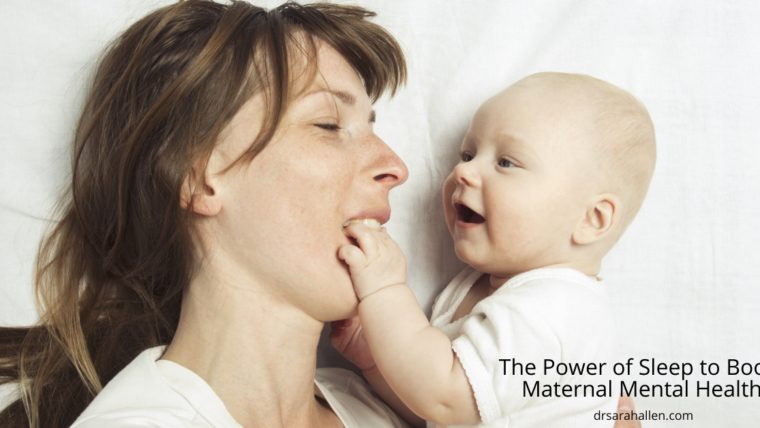Maternal mental health is a critical component of prenatal care, and prioritizing self-care during pregnancy is essential in promoting emotional well-being for both the mother and her baby. As expectant mothers experience physical, hormonal, and emotional changes, it’s crucial to maintain a sense of balance and ease by nurturing oneself physically, mentally, and emotionally. By incorporating self-care practices into a daily routine, pregnant women can cultivate resilience and a positive mindset, which has lasting benefits for the entire family.
In this blog post, we will emphasize the significance of self-care throughout pregnancy, focusing on the reasons why it is essential for maternal mental health. We will provide practical self-care tips and strategies for expectant mothers to support their emotional well-being during this transformative stage of life. By being proactive and intentional about self-care, pregnant women can cultivate a nurturing environment for themselves and their developing babies, ultimately paving the way for a successful transition into motherhood.
The Connection Between Pregnancy and Mental Health
Pregnancy is a unique and transformative period; however, it can also be accompanied by various challenges that can impact an expectant mother’s mental health. During pregnancy, women undergo multiple hormonal and physical changes, which can lead to fatigue, mood swings, and heightened levels of stress. Moreover, mental health conditions, such as depression and anxiety, can develop or intensify during pregnancy, which necessitates a proactive approach to foster emotional well-being. By understanding the vulnerability of mental health during pregnancy, expectant mothers can take purposeful action to prioritize self-care and create a nurturing environment for their developing baby.
The Benefits of Self-Care During Pregnancy
Self-care practices during pregnancy can confer numerous benefits for the mother’s mental health and overall well-being. Some of the advantages of prioritizing self-care during pregnancy include:
- Reduced stress and anxiety: Implementing self-care practices can help alleviate stress and anxiety, allowing expectant mothers to experience a calmer and more balanced pregnancy.
- Improved mood: Engaging in activities that promote relaxation and joy can boost mood and foster a sense of well-being throughout pregnancy.
- Enhanced self-confidence: Embracing self-care can empower pregnant women to feel more confident and prepared for their transition into motherhood.
- Stronger connections with the baby: Nurturing oneself can also create an opportunity for expectant mothers to bond with their growing baby.
- Strengthened relationships: By prioritizing self-care, expectant mothers can establish healthy boundaries and foster stronger connections with their partners, family, and friends.
Self-Care Tips and Strategies for Expectant Mothers
As emphasized earlier, incorporating self-care practices during pregnancy is integral in nurturing maternal mental health. The following tips and suggestions can be tailored to an individual’s preferences and incorporated into a daily routine:
- Prioritize rest and sleep: Adequate rest and sleep are vital for maintaining emotional balance during pregnancy, so ensure that you establish a regular sleep schedule and create a conducive sleep environment.
- Engage in physical activity: Incorporating gentle exercise, such as prenatal yoga, walking, or swimming, can help reduce stress, improve mood, and enhance overall well-being during pregnancy.
- Practice relaxation techniques: Mindfulness meditation, deep breathing exercises, and progressive muscle relaxation can help manage anxiety and stress during pregnancy.
- Nurture social connections: Maintaining close relationships with loved ones can provide emotional support and reassurance during pregnancy. Schedule regular catch-ups with friends and family or attend support groups and prenatal classes to stay connected.
- Set realistic expectations: Embrace the changes that occur during pregnancy and recognize that it may take time to adjust to new routines and responsibilities. Be patient with yourself and acknowledge that it’s okay to seek assistance when needed.
- Prioritize mental health care: Consult with healthcare providers or mental health specialists to manage any existing or new mental health concerns that may arise during pregnancy.
- Engage in pleasurable activities: Dedicate time to doing activities that you enjoy and help you relax, such as reading, listening to music, or pursuing creative hobbies.
- Maintain a healthy diet: Eating a nutritious and balanced diet can have profound effects on both your physical and emotional health during pregnancy.
Creating a Personalized Self-Care Plan
To ensure ongoing self-care, expectant mothers can create a personalized self-care plan that aligns with their unique needs and preferences. By setting aside dedicated time for self-care and incorporating activities that promote relaxation, joy, and connection, pregnant women can be proactive about their mental health throughout their pregnancy journey. Some suggestions for creating a self-care plan include:
- Make a list of self-care activities that resonate with you and how often you would like to engage in each activity.
- Set aside specific times during the day or week to practice self-care, and add these times to your schedule.
- Enlist the support of loved ones to maintain accountability to your self-care plan.
- Regularly evaluate and adjust your self-care plan to meet your evolving needs throughout pregnancy.
Conclusion
By caring for ourselves and prioritizing self-care during pregnancy, we lay the groundwork for a healthy emotional environment in which both the mother and baby can thrive. Embracing this approach fosters resilience and equips new mothers with the tools to navigate the challenges of motherhood while maintaining a strong connection with their child. We encourage all expectant mothers to explore these self-care tips and strategies and invite you to reach out to Postpartum Depression Alliance of Illinois for more maternal mental health therapy resources and support during your pregnancy journey.




